Organizers, Lecturers, and Learning Assistants
Click below for information about the UQ-bio Summer School Organizers, Lecturers and Learning Assistants.
(Currently, this page highlights the participants of the 2021 Summer School. Please check back often. 2022 Lecturers and Organizers for the 2022 program will be listed by March, and this list will be updated regularly until May 15.)
Interested to be a UQ-bio Learning Assistant, Lecturer or Invited Speaker? The UQ-BIO program seeks to provide unique opportunities for junior scientists (e.g., graduate students and postdocs) to gain leadership experience through participation as an onsite or online mentor for course projects. The UQ-Bio program strongly encourages participation from a diverse group of early and mid career scientists, including participants from historically marginalized groups and those who have taken non-traditional career paths. If you would like to get involved in the Undergraduate Quantitative Biology Summer School, please contact the organizers or fill out this learning assistant application form.
- Prof. Brian Munsky, Chemical and Biological Engineering, Colorado State University, Fort Collins, CO, USA (Contact Organizer)
- Dr. Luis U. Aguilera, Chemical and Biological Engineering, Colorado State University, Fort Collins, CO, USA (Co-Organizer and Lead Project Manager)
- Prof. Brian Munsky, Chemical and Biological Engineering, Colorado State University, Fort Collins, CO (Contact Organizer)
- Prof. Doug Shepherd, Physics, Arizona State University, Phoenix, AZ (Co-Organizer)
- Dr. Luis Aguilera, Chemical and Biological Engineering, Colorado State University, Fort Collins, CO (Project Manager)
- Dr. Linda Forero-Quintero, Chemical and Biological Engineering, Colorado State University, Fort Collins, CO
- Dr. Zachary Fox, Center for Non-Linear Studies, Los Alamos National Laboratory, Los Alamos, NM (Project Manager)
- Prof. Steve Presse, Physics and School of Molecular Physiology, Arizona State University, Phoenix, AZ
- Dr. Huy Vo, Chemical and Biological Engineering, Colorado State University, Fort Collins, CO (Project Manager)
- Michael May, Ph.D. Student, Biomedical Engineering, Colorado State University
- William Raymond, Ph.D. Student, Biomedical Engineering, Colorado State University
- Lisa Weber, Ph.D. Student, Chemical and Biological Engineering, Colorado State University
- Alexander Lubbock, Research Asst. Prof, Vanderbilt University
- Samantha Beik, Graduate Student, Vanderbilt University
- Prof. Mary Dunlop, Biomedical Engineering, Boston University, Boston, MA
- Prof. Srividya Iyer-Biswas, Purdue University, West Lafayette, IN
- Prof. Khuloud Jaqaman, Biophysics and Bioinformatics, University of Texas Southwestern Medical Center,
- Prof. Carlos Lopez, Vanderbilt University, Nashville, TN
- Prof. Zaida (Zan) Luthey-Schulten, Chemistry, University of Illinois Urbana-Champaign
- Prof. Gregor Neuert, Molecular Physiology and Biophysics, Vanderbilt University, Nashville, TN
- Prof. Linda Petzold, Computer Science, University of California Santa Barbara, Santa Barbara, CA
- Prof. Steve Presse, Physics and School of Molecular Physiology, Arizona State University, Phoenix, AZ
- Prof. Elizabeth Read, Chemical and Biomolecular Engineering, University of California, Irvine, CA
- Prof Jesse Wilson, Electrical and Computer Engineering, Colorado State University, Fort Collins, CO
- Prof. Elizabeth Read, Chemical & Biomolecular Engineering, University of California, Irvine
Learning Assistants who will be leading small group projects and problem sessions:
- Dr. Bryce Assay, Utah Public Health Laboratory
- Joshua Cook, M.S. Student, Biomedical Engineering, Colorado State University
- Kaan Öcal, Ph.D. Student, Edinburgh University
- Jafar Anafi, M.S. Student, Numerical Analysis, University of Germany
- Dr. Heidi Klumpe, Chemical Engineering, Caltech
- Dr. Nava Leibovich, Physics, University of Toronto
- Dr. Keisha Cook, Mathematics, Tulane University
- Eric Ron, M.S. Student, Biomedical Engineering, Colorado State University
- Brooke Silagy, M.E. Student, Chemical Engineering, Colorado State University
For more information about each organizer, lecturer, invited speaker, project manager, mentor, or learning assistant, please see below.
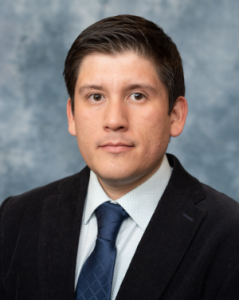
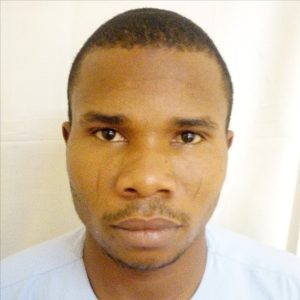
Jafar Anafi is from Nigeria, a graduate of Federal University Birnin Kebbi, Nigeria, and the African Institute for Mathematical Sciences (AIMS-Cameroon) and is highly skilled in Python, Sage Math, and LaTeX. His solid background in mathematics has allowed him to manage teams with exceptional performance. His training at Federal University Birnin Kebbi and AIMS-Cameroon, provided him with advanced knowledge of mathematical sciences, research skills to solve real-life problems, as well as analytical and organizational skills. During his undergraduate degree, his research project was entitled Generalization of T1 Non-Derange Permutation supervised by Prof. Isah Garba from Usman Danfodio University Sokoto, Nigeria. In the Department of Mathematics and he is also doing his Master Thesis on Numerical Analysis (A Python Environment for Numerical Continuation) supervised by Prof. Georg Bader from the University of Germany.
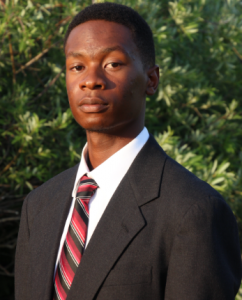
Joshua completed a dual degree in Biomedical Engineering and Chemical and Biological Engineering at Colorado State University. During his undergraduate degrees, he worked as an Undergraduate Lab Assistant in Dr. Munsky’s research group. While in the Munsky Group, he worked with the team on the Stochastic Identification Toolkit (SSIT), Finite State Projection (FSP) in transcription models and using image analysis codes. After graduation Joshua will continue to work with the Munsky Group as a graduate student pursuing a Masters degree in Bioengineering.
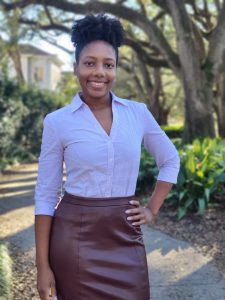 Dr. Keisha Cook, originally from Marietta, GA, is currently a postdoctoral researcher at Tulane University in the Department of Mathematics. In August 2021, she will transition to Assistant Professor in the School of Mathematical and Statistical Sciences at Clemson University. She received her PhD in computational mathematics from The University of Alabama. She is a member of the Southeast Center for Mathematics and Biology where she collaborates with a team of mathematicians and experimentalists. Their research group studies intracellular movement in human lung cells. While the experimentalists capture data using various imaging techniques, the mathematicians simulate the processes occurring inside of cells using mathematical models. They develop methodologies to statistically analyze the properties that influence these movements. The analysis is used by experimentalists to provide a deeper understanding of intracellular processes and introduce innovative ways to categorize movement. In addition to research, she teaches courses in probability and stochastic processes.
Dr. Keisha Cook, originally from Marietta, GA, is currently a postdoctoral researcher at Tulane University in the Department of Mathematics. In August 2021, she will transition to Assistant Professor in the School of Mathematical and Statistical Sciences at Clemson University. She received her PhD in computational mathematics from The University of Alabama. She is a member of the Southeast Center for Mathematics and Biology where she collaborates with a team of mathematicians and experimentalists. Their research group studies intracellular movement in human lung cells. While the experimentalists capture data using various imaging techniques, the mathematicians simulate the processes occurring inside of cells using mathematical models. They develop methodologies to statistically analyze the properties that influence these movements. The analysis is used by experimentalists to provide a deeper understanding of intracellular processes and introduce innovative ways to categorize movement. In addition to research, she teaches courses in probability and stochastic processes.
Outside of teaching and research, is a mentor for the Enhancing Diversity in Graduate Education program for women entering mathematics PhD programs, an organizer for the Math For All in New Orleans Conference (a conference focusing on highlighting underrepresented minorities in mathematics), and a co-advisor for the Student Chapter of the National Society of Black Engineers at Tulane. The service that she enjoys is a direct reflection of the mentors that played a part in helping her reach her goals throughout her career thus far. She strives to support and mentor underrepresented students, postdocs, and researchers throughout her career in academia. She has a keen interest in increasing the number of women and underrepresented students in STEM. Outside of the University, she participates in community service events hosted by STEM NOLA
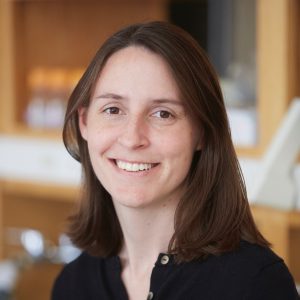
Mary Dunlop is an Associate Professor of Biomedical Engineering at Boston University with additional appointments in Bioinformatics and in the Molecular Biology, Cell Biology & Biochemistry program. She graduated from Princeton University with a B.S.E. in Mechanical and Aerospace Engineering and a minor in Computer Science. She then received her Ph.D. from the California Institute of Technology, where she studied synthetic biology with a focus on dynamics and feedback in gene regulation. As a postdoctoral scholar, she conducted research on biofuel production at the Department of Energy’s Joint BioEnergy Institute. Her lab engineers novel synthetic feedback control systems and also studies naturally occurring examples of feedback in gene regulation. In recognition of her outstanding research and service contributions, she has received many honors including a Department of Energy Early Career Award, a National Science Foundation CAREER Award, and the ACS Synthetic Biology Young Investigator Award. She is also the recipient of several teaching awards, including Boston University’s Biomedical Engineering Professor of the Year Award (2019) and the College of Engineering Teaching Excellence Award (2020).
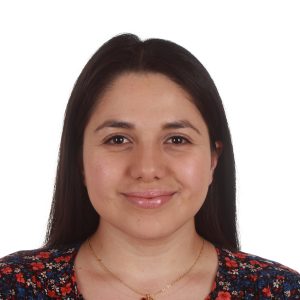
Dr. Linda Forero Quintero obtained her Ph.D. in natural sciences in 2016 from the University of Kaiserslautern, Germany. During her Ph.D. research, she worked on Neurosciences and Brain Energy Metabolism. Dr. Forero characterized the role of monocarboxylate transporters (MCTs) during epileptiform activity using pH and Ca2+ imaging. Currently, Dr. Forero is a postdoctoral scholar at Colorado State University, working under the supervision of Dr. Brian Munsky and Dr. Tim Stasevich. During the first part of her postdoc, Dr. Forero studied the timing, kinetics, and spatial organization of RNA Polymerase (RNAP2) phosphorylation along a single-copy gene in living cells. She combined multi-color, single-molecule microscopy with fluorescent antibody-based probes that specifically bind to unphosphorylated and phosphorylated forms of the CTD tail of RNAP2 in living cells. In he present research, Dr. Forero is investigating how to improve smFISH methodology to reduce experimental costs by predicting the most-cost effective experimental designs and automating image collection and processing.
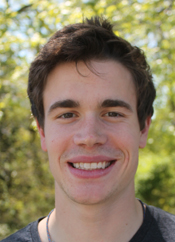
Zachary Fox received his doctorate in Biomedical Engineering from Colorado State University in 2019 where he developed new methods to integrate single-cell microscopy data and stochastic models of gene expression. These tools include new approaches to infer model parameters from data and use stochastic models to design more informative experiments. Zach then attended the Institut Pasteur in Paris, France, where he did his postdoc in microscopy automation and optogenetic control of gene expression in synthetically engineered yeast using stochastic models. He worked with Gregory Batt and Jakob Ruess. He is now working on a secondary postdoc at the Center for Nonlinear Studies and Computer, Computational, and Statistical Science at Los Alamos National Lab, with Dr. Yen Ting Lin and Dr. Anatoly Zlotnik.
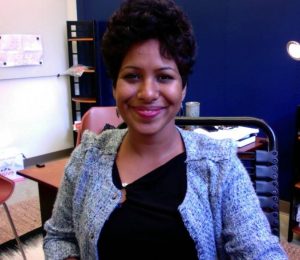
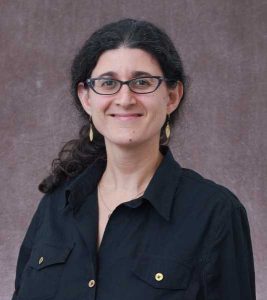
Dr. Jaqaman is an Assistant Professor in the Department of Biophysics and the Lyda Hill Department of Bioinformatics at UT Southwestern Medical Center (Dallas, TX). She did her undergraduate studies in physics at Birzeit University (West Bank), and her PhD research in Computational Biophysics at Indiana University Bloomington. She then did postdoctoral training at The Scripps Research Institute (La Jolla, CA), which introduced her to the fascinating world of quantitative cell biology and cellular biophysics.
Dr. Jaqaman’s research is focused on the spatiotemporal organization of cell surface receptors and its consequences for cell signaling, with particular interest in receptors that regulate angiogenesis. Her laboratory utilizes light microscopy to monitor molecular behavior in its native cellular environment, and develops computer vision and mathematical modeling approaches to achieve a quantitative understanding of the complex relationships between receptor spatiotemporal organization, activation and signaling.
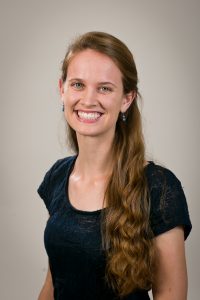
Heidi Klumpe recently finished her PhD in chemical engineering in Michael Elowitz’s lab at Caltech. While there, she studied the context-dependent, combinatorial logic of BMP signaling, using robotic liquid-handling to assess responses to signaling proteins across multiple combinations and receptor contexts. She has been a teaching assistant for Caltech’s “Data Analysis in the Biological Sciences” course, teaching Python basics, Bayesian inference, and image analysis. She also enjoys science communication, as a co-instructor of Caltech’s “Storytelling for Scientists” class and co-host of the “Not My Thesis” podcast.

Nava Leibovich has been a post-doctoral fellow at the Department of Physics since January 2020. She is part of the biophysics research groups of Professors Siddhartha Goyal and Anton Zilman. Her current work focuses on the theoretical examination of ecosystems evolving under mutual competition between species. Her research is supported by the Council for Higher Education of Israel and by the Ben-Gurion University of the Negev, Israel.
Nava obtained her BSc in Mathematics and Physics, and MSc and PhD in theoretical Physics from Bar-Ilan University in Israel. Her research is concentrated on studying stochastic processes. Although every theoretical study uses simplified models, she believes that the role of a theory is to provide a framework to interpret the real world and to predict its behavior. In 2019, as part of a postdoctoral research at UTM, Nava developed a new method to evaluate reaction rates of biochemical molecules. This method is general, and can be applied to other processes as well.

Carlos F. Lopez, received his BSc and BLA degrees from the University of Miami and his PhD in Physical Chemistry from the University of Pennsylvania. He pursued a postdoctoral position at the University of Texas at Austin where he studied theoretical biophysics of protein solvation. He pursued further training at Harvard Medical school where he attained the prestigious HW Pierce/King Trust Research Fellowship and developed novel methods to bridge scales in the study of cellular processes. He subsequently moved to Vanderbilt University at the end of 2012 as an Assistant Professor of Cancer Biology, Biomedical Informatics, and faculty member of the Vanderbilt-Ingram Cancer Center, Center for Quantitative Sciences, Center for Structural Biology, Institute for Chemical Biology, and Quantitative Sys-tems Biology Center. In 2017, he moved to the Department of Biochemistry as part of an administrative reorganiza-tion within Vanderbilt University.
He has been the recipient of multiple awards, honors, and fellowships including the NIH K22 Transition Career Development Award (2011), American Association for Cancer Research – Minority Scholar in Cancer Research Award (2012), Vanderbilt-Ingram Cancer Center Young Ambassadors Award (2013), Vanderbilt Provost Office Outstanding URM Accomplishments Award (2014, 2015, 2016), Leadership Alliance SR-EIP Faculty Mentor Commendation (2015), and the National Science Foundation CAREER Award – the highest honor conveyed by this organization to junior faculty. He was appointed as the Vanderbilt University Liaison to Oak Ridge National Laboratory in 2017-2019, where he served in the ORNL steering committee to guide the interactions between the national lab and Vanderbilt University.
Recently, he has also become a member of the Cancer Systems Biology Consortium as part of his research activities with NIH/NCI. His work employs novel computational modeling tools in combination with experimental data to explain and predict how intracellular molecular interactions give rise to cell-decision processes and cell-community behaviors. The overall goal of his work is to attain a mechanistic and predictive understanding of dynamic cellular systems, how they are regulated in healthy cells, dysregulated in dis-eases such as cancer, and leverage this knowledge to guide experiments toward novel therapies. To this end he devel-ops novel theories and numerical methods to explain how systems-level biochemical interaction networks process biochemical signals and lead to a phenotypic outcome.
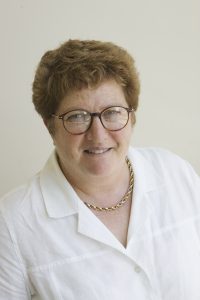
Professor Zaida (Zan) Luthey-Schulten received a B.S. in Chemistry from the University of Southern California in 1969, an M.S. in Chemistry from Harvard University in 1972, and a Ph.D. in Applied Mathematics from Harvard University in 1975. From 1975 to 1980, she was a Research Fellow at the Max-Planck Institute for Biophysical Chemistry in Göttingen, and from 1980 to 1986, a Research Associate in the Department of Theoretical Physics at the Technical University of Munich. Professor Luthey-Schulten has been at the University of Illinois since 1987, where she is currently the Murchison-Malley Professor of Chemistry, co-director of the NSF Center for the Physics of Living Cells, and co-investigator at the NIH Resource of Macromolecular Modeling and Bioinformatics at the Beckman Institute.
Her research group currently develops the GPU-based software Lattice Microbes for spatially-resolved stochastic simulations of whole cells at biologically relevant length (micron), time (hours), and concentrations (nM to mM) scales. Their simulations of a minimal cell and simple eukaryotic cells integrate a broad range of experimental data with hybrid stochastic-deterministic methodologies to determine the time-dependence of metabolites, proteins, and nucleic acids involved in cellular processes of metabolism, genetic information processing, and growth.
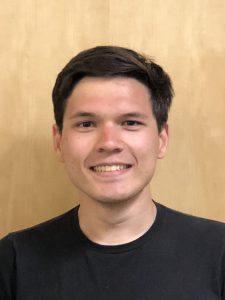
Michael is a 4th year Ph.D. Student in Biomedical Engineering and is currently co-advised by Dr. Munsky and Dr. Stasevish. He works on problems characterizing variability in single-cell, single-molecule experiments using computational and mathematical tools, and uses control theory derive new control techniques to control random processes. His current work is building an automated microscope that can eventually be used for the control of cell populations, and developing new control techniques for optogenetic controlled systems.
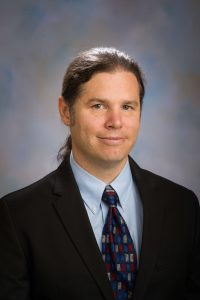
Dr. Munsky joined the Department of Chemical and Biological Engineering and the School of Biomedical Engineering as an assistant professor in January of 2014. He received B.S. and M.S. degrees in Aerospace Engineering from the Pennsylvania State University in 2000 and 2002, respectively, and his Ph.D. in Mechanical Engineering from the University of California at Santa Barbara in 2008. Following his graduate studies, Dr. Munsky worked at the Los Alamos National Laboratory — as a Director’s Postdoctoral Fellow (2008-2010), as a Richard P. Feynman Distinguished Postdoctoral Fellow in Theory and Computing (2010-2013), and as a Staff Scientist (2013). Dr. Munsky is best known for his discovery of Finite State Projection algorithm, which has enabled the efficient study of probability distribution dynamics for stochastic gene regulatory networks. Dr. Munsky’s research interests at CSU are in the integration of stochastic models with single-cell experiments to identify predictive models of gene regulatory systems, and his research is actively funded by the W M Keck Foundation, the NIGMS (MIRA), and the NSF (CAREER). Dr. Munsky is very excited about the future of quantitative biology, and he would love to talk about this with you!
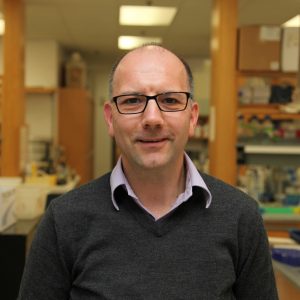 Gregor Neuert is an Assistant Professor of Molecular Physiology and Biophysics in the Basic Sciences in the School of Medicine at Vanderbilt University, Nashville, TN. He applies multidisciplinary systems biology approaches to address fundamental questions in signaling transduction and gene regulation of protein-coding and long non-coding RNA in single cells. Dr. Neuert obtained his Ph.D. in physics in Hermann Gaub’s laboratory at the Ludwig Maximilians University, Munich, Germany, with research in single-molecule biophysics. His postdoctoral research involved experimental and theoretical biophysics studies on gene regulation in single cells as a Deutsche Forschungs Gemeinschaft (DFG) Postdoctoral Fellow in the Alexander van Oudenaarden’s laboratory at the Massachusetts Institute of Technology, Cambridge, MA. He established his independent laboratory at Vanderbilt in 2012 and holds secondary appointments in Biomedical Engineering and Pharmacology. Since joining Vanderbilt, he won an NIH Directors New Innovator award, secured NIH R01 research grants, and is a Vanderbilt School of Medicine Basic Sciences Dean’s Faculty Fellow.
Gregor Neuert is an Assistant Professor of Molecular Physiology and Biophysics in the Basic Sciences in the School of Medicine at Vanderbilt University, Nashville, TN. He applies multidisciplinary systems biology approaches to address fundamental questions in signaling transduction and gene regulation of protein-coding and long non-coding RNA in single cells. Dr. Neuert obtained his Ph.D. in physics in Hermann Gaub’s laboratory at the Ludwig Maximilians University, Munich, Germany, with research in single-molecule biophysics. His postdoctoral research involved experimental and theoretical biophysics studies on gene regulation in single cells as a Deutsche Forschungs Gemeinschaft (DFG) Postdoctoral Fellow in the Alexander van Oudenaarden’s laboratory at the Massachusetts Institute of Technology, Cambridge, MA. He established his independent laboratory at Vanderbilt in 2012 and holds secondary appointments in Biomedical Engineering and Pharmacology. Since joining Vanderbilt, he won an NIH Directors New Innovator award, secured NIH R01 research grants, and is a Vanderbilt School of Medicine Basic Sciences Dean’s Faculty Fellow.
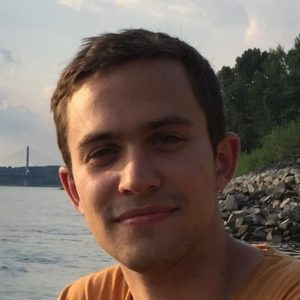 Kaan is a PhD student at the University of Edinburgh, Scotland working with Ramon Grima and Guido Sanguinetti. Coming from a pure maths background his research is in modelling and inference for stochastic biochemical systems, focusing on the Chemical Master Equation and its variants. He is currently working on likelihood-free inference and automated model reduction for stochastic models which are not easily amenable to standard methods.
Kaan is a PhD student at the University of Edinburgh, Scotland working with Ramon Grima and Guido Sanguinetti. Coming from a pure maths background his research is in modelling and inference for stochastic biochemical systems, focusing on the Chemical Master Equation and its variants. He is currently working on likelihood-free inference and automated model reduction for stochastic models which are not easily amenable to standard methods.
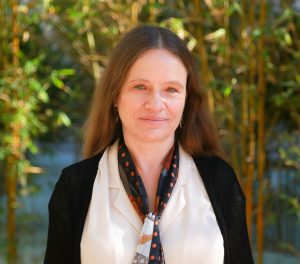
Dr. Linda Petzold is currently Distinguished Professor in the Department of Mechanical Engineering and the Department of Computer Science (Chair 2003-2007), and Director of the Computational Science and Engineering Graduate Emphasis at the University of California Santa Barbara. She is a member of the US National Academy of Engineering and a Fellow of ACM, ASME, SIAM, AIMBE and AAAS. She was named the UCSB Faculty Research Lecturer for 2011, was awarded the SIAM/ACM Prize for Computational Science and Engineering in 2013, received an Honorary Doctorate from Uppsala University in 2015, was awarded the SIAM Prize for Distinguished Service in 2016, and was awarded the IEEE Sydney Fernbach Prize in 2018. Her current research focuses on modeling, simulation and data analytics of multiscale systems in biology and medicine.
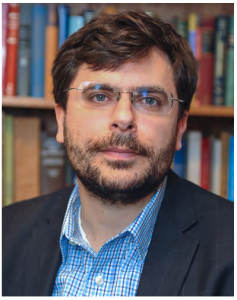 Steve Pressé went to McGill University as an undergrad where he studied chemistry. He later pursued his doctorate in chemical physics at Massachusetts Institute of Technology (MIT) under the direction of Professor Robert J. Silbey. As a postdoctoral fellow in Professor Ken A. Dill’s lab, his research focus shifted to biophysics and dynamical processes in particular. His lab now uses both theory and experiments to address fundamental questions relevant to molecular science. On the theory side, his group develops, adapts and uses the tools of inference, statistical physics and stochastic processes, broadly defined, to understand living systems from single molecules to whole cells. A special emphasis is placed on interpreting spectroscopy and imaging data. On the experimental side, Pressé’s group investigates the role of hydrodynamics on bacterial interactions.
Steve Pressé went to McGill University as an undergrad where he studied chemistry. He later pursued his doctorate in chemical physics at Massachusetts Institute of Technology (MIT) under the direction of Professor Robert J. Silbey. As a postdoctoral fellow in Professor Ken A. Dill’s lab, his research focus shifted to biophysics and dynamical processes in particular. His lab now uses both theory and experiments to address fundamental questions relevant to molecular science. On the theory side, his group develops, adapts and uses the tools of inference, statistical physics and stochastic processes, broadly defined, to understand living systems from single molecules to whole cells. A special emphasis is placed on interpreting spectroscopy and imaging data. On the experimental side, Pressé’s group investigates the role of hydrodynamics on bacterial interactions.
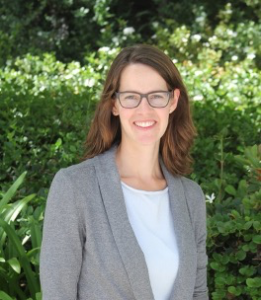
Elizabeth Read is Assistant Professor of Chemical & Biomolecular Engineering at the University of California, Irvine. She holds undergraduate degrees in Chemistry and Mathematics from the University of Colorado and a PhD in Chemistry from the University of California, Berkeley. Prof. Read is a member of the UC Irvine Center for Complex Biological Systems and the NSF-Simons Center for Multiscale Cell Fate.
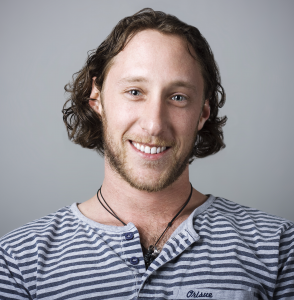
Eric received his undergraduate degree in biochemistry from Colorado State University in 2013. He then worked as an analytical chemist for two years in industry before working as product development lead and cofounder of a start-up company until 2018. Currently, he is working on his Master’s Degree and is interested in single-cell microscopy and the integration of stochastic models with transcription and translation dynamics. In his current work he is helping with the optimization of smFISH experiments and assisting with the automation of image processing.
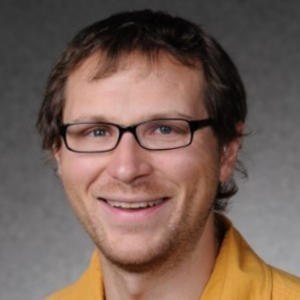
Douglas Shepherd was born in Albuquerque, NM and went to the University of California Santa Barbara as a undergraduate where he studied physics. After a break from academia, he pursued his doctorate in single-molecule physics at Colorado State University under the direction of Profs. Alan Van Orden (Chemistry) and Martin Gelfand (Physics). He went onto a postdoctoral fellowship in the Center for Integrated Nanotechnologies (CINT) and Center for Nonlinear Studies (CNLS) at Los Alamos National Laboratory. Working with Drs. James Werner (CINT) and Brian Munsky (CNLS), he built new tools to measure and model gene regulation in pathogenic bacteria.
Shepherd directs the Quantitative Imaging and Inference (QI2) lab, which he formed at the University of Colorado Denver Anschutz Medical Campus in 2013. In 2019, Shepherd and the QI2 lab relocated to the Center for Biological Physics and Department of Physics at ASU. The QI2 lab develops, adapts, and uses high-throughput fluorescence imaging methods and statistical inference tools to build a quantitative understanding of how cells organize into tissue and organs. The QI2 lab is a contributing member of the Chan Zuckerberg Initiative Human Cell Atlas, with a particular interest in highly-multiplexed single-molecule mapping of gene expression to infer cell type throughout the human lung.
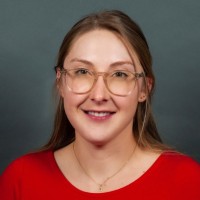
Brooke Silagy received her B.S. in Chemistry from Michigan State University in 2016. After a break from academia working in the pharmaceutical and medical industries, she is currently pursuing her M.E. in Chemical Engineering from Colorado State University. In addition, she works as a graduate research assistant with Dr. Brian Munsky’s group applying the design of computational algorithms to integrate single-molecule gene expression data with stochastic models.
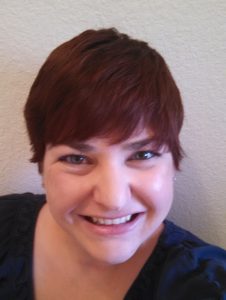 Lisa Weber is currently an Instructor and PhD Candidate in Chemical Engineering at Colorado State University. She received a BS in Chemical Engineering from the University of Colorado-Boulder, an MS in Mechanical Engineering with a biological emphasis from the University of Denver, and has engineering experience in multiple industries (Oil and Gas, Pharmaceuticals, and Aerospace). Her research involves performing computational modeling of various biological processes, including aspects of gene expression and DNA/Oligonucleotide binding interactions in relation to multiple experimental variables, integrating computational methods with experimental data. She also has an interest in helping engineering students foster more inclusive professional identities by (performing research on) implementing and teaching implicit bias, inclusion, and diversity-related topics to undergraduate engineering students. In addition, she was a Graduate Teaching Fellow from 2017-2019, and she is currently the Instructor for CBE 160: Introduction to MATLAB for Chemical and Biological Engineers (from 2018-Present).
Lisa Weber is currently an Instructor and PhD Candidate in Chemical Engineering at Colorado State University. She received a BS in Chemical Engineering from the University of Colorado-Boulder, an MS in Mechanical Engineering with a biological emphasis from the University of Denver, and has engineering experience in multiple industries (Oil and Gas, Pharmaceuticals, and Aerospace). Her research involves performing computational modeling of various biological processes, including aspects of gene expression and DNA/Oligonucleotide binding interactions in relation to multiple experimental variables, integrating computational methods with experimental data. She also has an interest in helping engineering students foster more inclusive professional identities by (performing research on) implementing and teaching implicit bias, inclusion, and diversity-related topics to undergraduate engineering students. In addition, she was a Graduate Teaching Fellow from 2017-2019, and she is currently the Instructor for CBE 160: Introduction to MATLAB for Chemical and Biological Engineers (from 2018-Present).
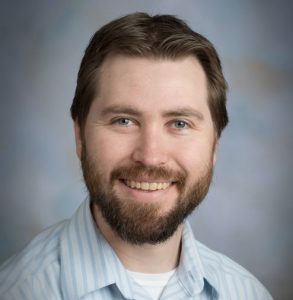
Jesse Wilson is a Boettcher Young Investigator, Rhoden Professor, and Assistant Professor of Electrical & Computer Engineering at Colorado State University. Prior to joining CSU’s faculty, Jesse trained as a postdoc in Warren Warren’s lab at Duke University, working on in-vivo transient absorption microscopy of melanoma. He earned his PhD in Randy Bartels’ lab at Colorado State University, developing techniques in ultrafast pulse shaping and impulsive Raman spectroscopy.
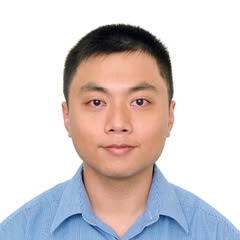
Huy Vo is a postdoctoral researcher in Munsky Group at Colorado State University. He earned a Ph.D. degree in Mathematics from the university of Alabama in 2017. His current research focuses on developing new computational tools to design informative single-cell experiments that account for both intrinsic noise and measurement uncertainty.
To keep up to date on UQ-BIO activities, please Join our Slack Channel by Clicking Here:
